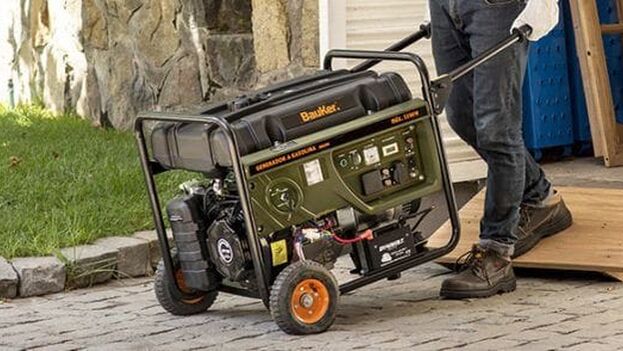
![]() 14ymedio, Madrid, 28 December 2022 — The Cuban authorities extended the importation of electric generators of more than 900 watts for three months, a measure approved in August to try to alleviate the energy crisis, which was at its worst in the summer. The measure expires on December 31.
14ymedio, Madrid, 28 December 2022 — The Cuban authorities extended the importation of electric generators of more than 900 watts for three months, a measure approved in August to try to alleviate the energy crisis, which was at its worst in the summer. The measure expires on December 31.
The new resolution of the Ministry of Finance and Prices extends the measure until March 31, “to provide that some of the electric generators purchased by the population will be dispatched abroad before or during this deadline, will be in transit and will arrive later in the country.”
The rule states that this grants “special treatment” to this high-production equipment.
In July, a series of measures were approved to make the import of some items to Cuba more flexible as long as they were not for commercial purposes. These include products from cell phones and computers to dozens of appliances, car parts, furniture, toys and sports items, among others.
The list also included electric generators of up to 900 watts for 200 dollars, from 900 to 1,500 watts for 500 dollars, and greater than 1,500 watts for 950. The General Customs of the Republic then established the limits in quantity and fees, including 30% of the value for items of more than 200 dollars.
The resolution entered into force on August 15, but before that the Cuban authorities had already realized the error made with the electric generators, undervalued in the document. That is why they rectified the values in another rule dated August 11 that, although it was not reported until it was published in the Official Gazette of September 5, should have been applied from the beginning of operations.
“When assessing the effects that still persist in the residential sector, as a result of the energy deficit caused by breakdowns in the national electro-energy system, it is necessary to authorize, on a temporary basis, the import of electric generators with a power greater than 900 watts, whose reference value in Customs exceeds the maximum value of two hundred (200) US dollars allowed to import through air, maritime, postal and courier without a commercial nature,” said the new text, now extended.
At that time, the price of most 900-watt electric generators that could be found online in both the United States and Panama, Cubans’ favorite markets, exceeded not just $200, but even $500. Although the winter season has reduced prices, it is not currently possible to adjust to the prices forecast by the July resolution.
The extension will allow the current imports to continue to arrive and the new ones to be arranged now, but it will be difficult to continue acquiring the equipment if the July rule is not further modified after March, unless the generators become cheaper.
The reactions to the extension in the official press faithfully reflect the concerns that this newspaper expressed in the summer regarding noise pollution: “The family of the lucky man sleeps, and the rest of the neighborhood is awake all night”; “I have not seen any document that expresses the damage that these plants are causing. If the noise is within the permissible limits, if it affects the health of the neighbors…”; and, above all, the shortage of gasoline.
As this newspaper pointed out, although many workers skip the formal limits in exchange for some financial consideration, it is common for gas stations to limit the sale of gasoline in containers due to shortages.
“What’s the point, if later they put a thousand obstacles in the way of getting fuel? It’s typical in our country; they make things difficult for the citizen,” laments one reader. Several call for the elimination of Customs limits and an end to the “internal blockade,” and although others note that all countries have regulations of this type, a commentator points out the Cuban exceptionalism. “Compadre, the Cuban situation is unique. They [referring to the government] don’t have the money to buy anything, they have an unpayable internal debt and they live on donations. Yes, it should be tax-free to make life a little more tolerable for Cubans,” he says.
Translated by Regina Anavy
____________
COLLABORATE WITH OUR WORK: The 14ymedio team is committed to practicing serious journalism that reflects Cuba’s reality in all its depth. Thank you for joining us on this long journey. We invite you to continue supporting us by becoming a member of 14ymedio now. Together we can continue transforming journalism in Cuba.
